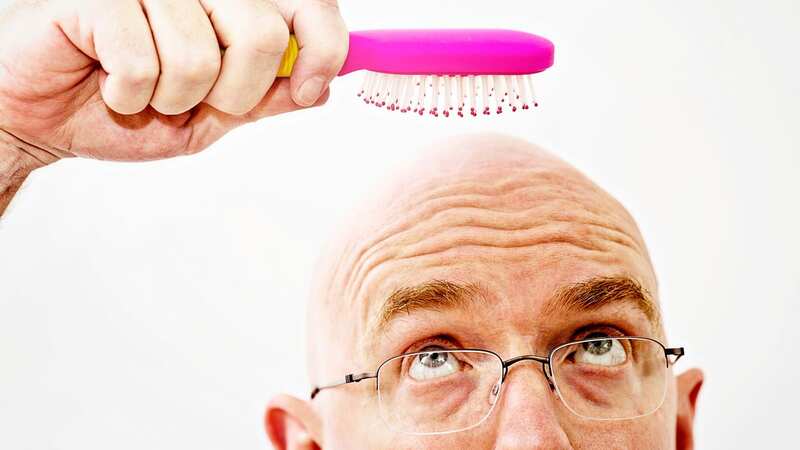

For decades men have been sensitive about baldness – and some have resorted to those embarrassing comb overs. But with new treatments, comb overs may soon be a thing of the past.
Male pattern baldness affects 85% of men by the age of 50 and can cause anxiety and damage self esteem.
We know baldness happens because specialised skin cells, called dermal papillae, which line the base of hair follicles, are lost.
These cells regulate hair thickness, growth and texture but they are killed off by the male hormone dihydrotestosterone.
“You have about 1,000 of these dermal papilla cells per hair,” says Paul Kemp, co-founder of HairClone which is developing cell therapy for baldness.
 'Blunt message about smoking shows how deadly illnesses take awful toll'
'Blunt message about smoking shows how deadly illnesses take awful toll'
 Dr Miriam Stoppard is the Mirror's resident medical writer
Dr Miriam Stoppard is the Mirror's resident medical writer“The more dermal papilla cells, the thicker the hair shaft. When you get down to around half that number, you’ll notice the hair thinning.”
Interestingly, bald heads aren’t hairless. As dermal papilla cells are lost, the hairs become so fine and grow so slowly they’re effectively invisible, a process called miniaturisation.
For the new therapy, HairClone places hair follicles in a deep freeze at-150C. When required, the follicles are thawed and the dermal papilla are cloned in the laboratory to give an almost unlimited supply.
Animal tests show injecting the cells back into the scalp will jump-start the follicles and return hair to a more youthful state.
“We’re not making new hairs, we’re rescuing miniaturising hairs,” says Kemp. Around 200 clients have already banked hair follicles with HairClone, although none have been treated yet.
They are waiting for effectiveness to be proved in clinical trials which may take the form of doctors using the process experimentally in patients who they think could benefit.
Scientists believe it may be possible to predict a man’s eventual hairline by analysing genetic markers hidden inside dermal papilla cells, meaning that in future, men could make more informed choices about the most appropriate treatment.
“There’s always been this clear pattern of male hair loss, but no one’s really explained why it’s like that,” says Dr Claire Higgins, lecturer in tissue regeneration at Imperial College London and scientific adviser to HairClone.
Dr Higgins argues male pattern baldness traces out the boundary between skin cells that have taken two very different paths during their development.
This, she says, could explain why cells on only certain parts of the head are affected by dihydrotestosterone.
 'Artificial intelligence could spot UTI linked to millions of deaths – and fast'
'Artificial intelligence could spot UTI linked to millions of deaths – and fast'
Kemp and colleagues are working on gene markers in papilla cells to establish whether the part of the scalp they come from is balding, destined to bald or will always retain its hair.
“Ideally you want to be able to map the head,” he says.